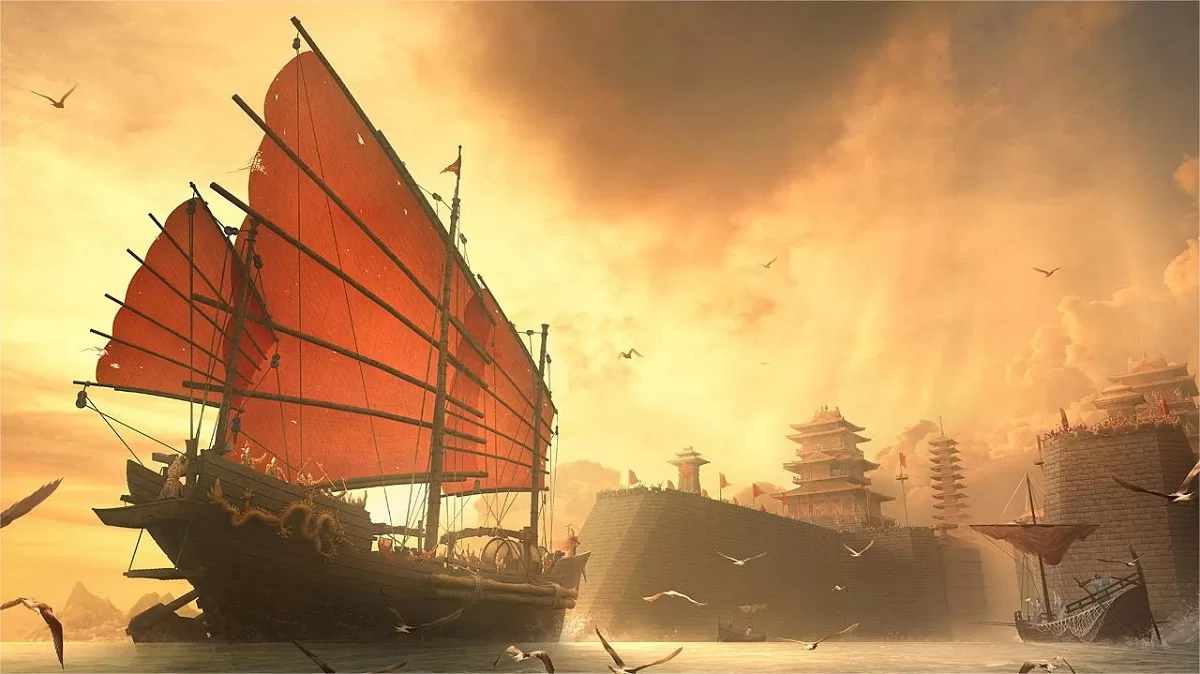Zheng He, also known as Cheng Ho, was a remarkable Chinese explorer and mariner who lived during the early Ming Dynasty. Born in 1371 in the province of Yunnan, China, Zheng He would go on to lead an extraordinary series of voyages that would greatly expand Chinese influence and promote trade and diplomacy throughout the Indian Ocean. His expeditions, known as the “Treasure Voyages,” were unprecedented in scale and ambition, establishing him as one of the most influential figures in maritime history.
Zheng He’s early life was marked by adversity. As a child, he was captured by Chinese forces during a conflict and taken as a prisoner of war. He was eventually castrated and entered into service in the imperial court. However, his talents and leadership abilities were quickly recognized, and he rose through the ranks of the imperial eunuch hierarchy. He became a trusted confidant of the Yongle Emperor, who would later commission him to lead the famous voyages.
Between 1405 and 1433, Zheng He commanded a fleet of massive ships, known as “treasure ships,” on seven major expeditions. These voyages involved hundreds of ships and tens of thousands of sailors, making them the largest maritime expeditions of their time. Zheng He’s fleet visited numerous countries and regions, including Southeast Asia, India, the Arabian Peninsula, and even the east coast of Africa.
Zheng He’s expeditions had multiple purposes. One of the primary goals was to establish Chinese dominance and showcase the wealth and power of the Ming Dynasty. The treasure ships carried valuable goods, including silk, porcelain, and gold, which were used to bestow gifts on foreign rulers, forging diplomatic alliances and fostering trade relationships. Zheng He’s voyages were also aimed at expanding China’s influence, spreading Chinese culture, and gathering knowledge about the outside world.
One of the most notable aspects of Zheng He’s expeditions was his ability to navigate and maintain peace in diverse and unfamiliar territories. His fleet included not only military ships but also smaller vessels that carried diplomats, scholars, and experts in various fields. Zheng He’s expeditions were characterized by a spirit of exploration, cultural exchange, and mutual respect, as he sought to establish peaceful relations with the countries he encountered.
Zheng He’s voyages had a significant impact on the regions he visited. They helped establish Chinese control over strategic ports, ensured safe passage for Chinese merchants, and promoted trade between China and other nations. The expeditions also played a crucial role in disseminating Chinese cultural influence, as Zheng He and his crew brought back exotic goods, plants, animals, and people from the countries they visited. This exchange of goods and ideas enriched Chinese society and influenced the development of art, architecture, and technology.
Despite his remarkable achievements, Zheng He’s expeditions were not without controversy. Some critics argued that the vast resources devoted to the voyages could have been better utilized within China, particularly during a period of internal challenges. As a result, after the death of the Yongle Emperor, the Treasure Voyages were abruptly halted, and China turned its focus inward, pursuing a policy of isolationism.
Nevertheless, Zheng He’s legacy endured. His voyages laid the groundwork for future maritime explorations and influenced subsequent European explorers, such as Christopher Columbus and Vasco da Gama. Zheng He’s expeditions were also a testament to the remarkable naval capabilities of the Ming Dynasty, showcasing China’s advanced shipbuilding techniques and navigational prowess.
In conclusion, Zheng He’s life and achievements continue to inspire admiration and fascination. His leadership, navigational skills, and diplomatic abilities helped establish China as a major maritime power during the Ming Dynasty. His expeditions promoted trade, cultural exchange, and diplomacy, leaving a lasting impact on the regions he visited. Zheng He’s legacy serves as a testament to the spirit of exploration and the potential for cross-cultural understanding that can arise from maritime exploration.


